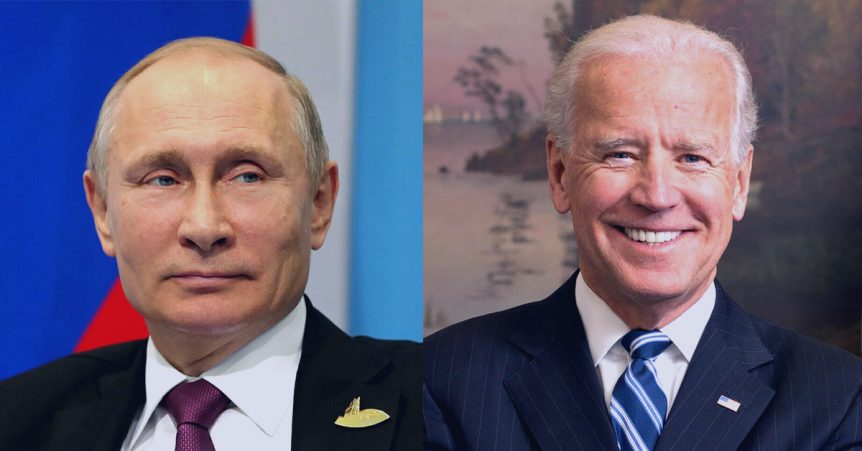On 14 June 2021, the Cairo Institute for Human Rights Studies (CIHRS) sent a letter to US President Joe Biden, urging him to discuss Russia’s involvement in the conflict in Libya during the upcoming meeting between the US President and his Russian counterpart Vladimir Putin in Geneva slated for 16 June.
CIHRS called on Biden to take action in line with the United States’ declared prioritization of “unity, transparency, and free and fair elections” in Libya. This prioritization should include pressuring Russia to stop its military build-up the country and withdraw its mercenary and paramilitary forces, and to support security sector reform. Furthermore, the United States must condemn the widespread and egregious human rights violations committed in Libya by the Wagner Group, a Russian paramilitary organization, and to demand Russian cooperation in identifying perpetrators of violations and holding them accountable.
Libya is preparing to hold elections this coming December. The impunity of armed groups and the entrenchment of foreign forces in Libya, especially Russian forces, may prevent or hinder the holding of these elections, and it may lead to further conflict and fragmentation in the country.
The U.S. must reaffirm its commitment to sustainable peace and rule of law in Libya
President Joseph R. Biden Jr.
President of the United States of America
Dear Mr. President,
We are writing to urge you to discuss the subject of Russia’s involvement in the conflict in Libya in your meeting with President Putin in Geneva on June 16. In the past year, and especially since your inauguration in January, the United States has appeared to be taking a more active role in Libya, even more so since a transitional government was established in March 2021. U.S. Ambassador to the United Nations Linda Thomas-Greenfield identified American priorities in Libya as “unity, transparency, and free and fair elections”. We share these objectives.
The pervasive impunity of state-affiliated armed groups and the entrenchment of foreign forces, notably Russian forces, continue to stand in the way of unity, transparency, and the holding of free and fair elections in December 2021. Building an accountable national security sector and the withdrawal of foreign forces are crucial to progressing towards lasting peace and advancing a democratic transition.
More than seven months after the ceasefire, the security situation remains fragile and few practical steps have been taken on security sector reform, aside from confidence-building measures; this despite the inclusion of a provision on demobilization and reintegration of armed groups in the ceasefire agreement. As long as foreign military actors retain significant sway, progress by Libyan actors to address structural issues will remain blocked.
As we mentioned in previous recommendations to your administration, and in order to protect U.S. security and economic interests, the United States should press Russia to cease its military build-up in Libya, withdraw its mercenaries, and support security sector reform. The United States should also denounce the grave human rights abuses committed by operatives of the Wagner Group in Libya and demand that Russia cooperates in identifying perpetrators and seeking accountability.
Russia’s aggressive actions in Libya – assisted by Egypt – are impossible to ignore. The Russian paramilitary Wagner Group – likely supported by the UAE – is now estimated to have at least 2,000 operatives in the country, in addition to 2,000 recruited Syrian fighters. Through paramilitary companies (PMCs) serving as shadow armies, Russia has sought to advance its geopolitical influence and economic interests. Wagner’s military presence around major oil fields and airbases has ensured that Russia has a say in political developments, while undermining international rule of law and weakening NATO’s southern flank. Russia has also built leverage in Libya using disinformation campaigns and by printing counterfeit money.
The Wagner Group has reportedly been heavily involved in illicit and destabilizing activities, in a number of countries. In Libya and elsewhere, there are strong allegations of grave human rights abuses committed by Wagner forces. At the same time, Russia has obstructed the sanctioning of perpetrators of violations and – like Egypt – supports the reestablishment of former regime Gaddafist networks.
Russia is a pragmatic and opportunistic player in Libya, as illustrated by its skepticism over the success of the April 2019 assault on Tripoli. Moscow considers Turkey to be “a very close partner“, based on shared economic and political interests. Like Turkey and Egypt, it does not seek a long and costly armed conflict in Libya.
These interests could lay the ground for a withdrawal of Russian and other foreign forces in Libya. Libya’s dysfunctions -including the proliferation of armed groups and criminal activity, and the fragmented institutions – are not conducive to business. Supporting the rebuilding of Libyan institutions and meaningful security sector reform could benefit both Russia and Libyan citizens.
In parallel, the U.S. should continue to denounce Russian activity in Libya through the U.S. Africa Command and leverage diplomatic, economic and military ties with the UAE to compel it to stop supporting Russian fighters in Libya, in addition to other mercenaries.
The evolution of the conflict in Libya has illustrated, and contributed to, the erosion of the international rule of law. The proliferation and globalization of foreign mercenary groups has allowed foreign actors to maintain plausible deniability while facilitating military action with minimal risks and costs. This disturbing development was fostered by a lack of commitment to peace and accountability, with repercussions on American security and stability interests in the region and beyond.
Mr. President, we request that the United States prioritize upholding international norms and the rule of law in its engagement with Russia on Libya, in order to ensure that elections take place in December 2021, and that they do not lead to further conflict and/or a more definite partition of the country.
Most respectfully.
Share this Post

